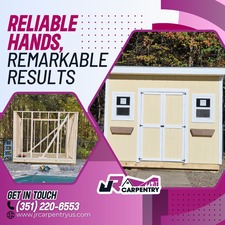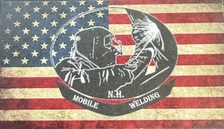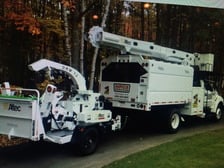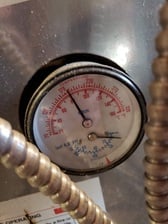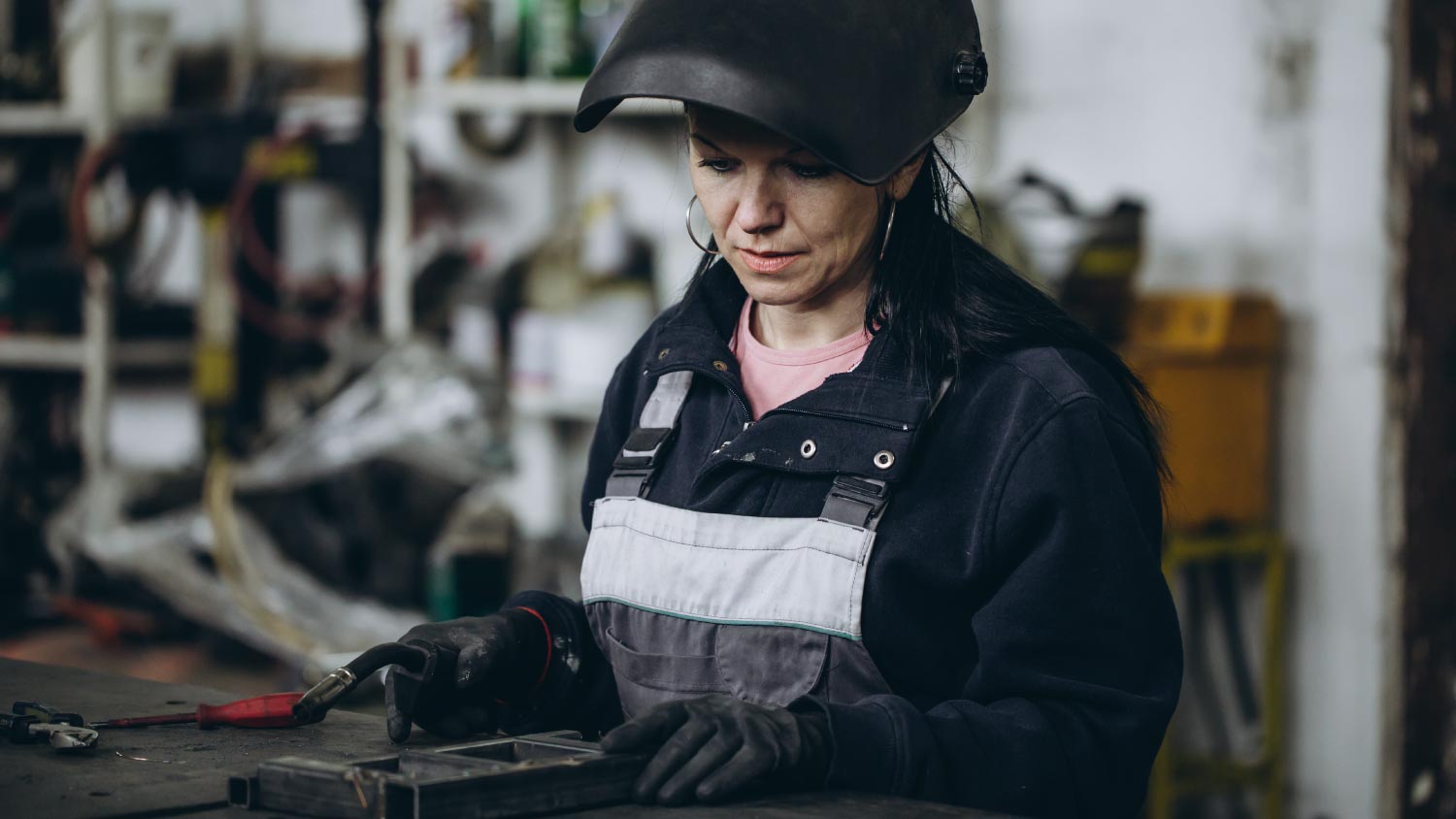
Get matched with top welders in New Ipswich, NH
Enter your ZIP and get matched with up to 5 pros
Need a pro for your welding project in New Ipswich, NH?
Verified Reviews for Welding pros in New Ipswich, NH
*The Angi rating for Welding companies in New Ipswich, NH is a rating based on verified reviews from our community of homeowners who have used these pros to meet their Welding needs.
*The HomeAdvisor rating for Welding companies in New Ipswich, NH is a rating based on verified reviews from our community of homeowners who have used these pros to meet their Welding needs.
Last update on December 09, 2025
Find Welders in New Ipswich
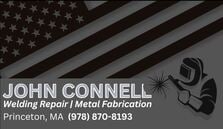
J. Connell Welding Services
J. Connell Welding Services
We take great pride in our experience, expertise, quality, and customer service that we provide to meet the consumers' needs. It is our mission to provide excellent workmanship, and complete customer satisfaction from start to completion of a project. In order to understand the needs, and expectations of our customers, we take great care to work, and communicate with every customer in a professional manner. Our reputation is based on service, safety, and quality, regardless of how large or small the job.
"They were great."
Mary K on April 2025
We take great pride in our experience, expertise, quality, and customer service that we provide to meet the consumers' needs. It is our mission to provide excellent workmanship, and complete customer satisfaction from start to completion of a project. In order to understand the needs, and expectations of our customers, we take great care to work, and communicate with every customer in a professional manner. Our reputation is based on service, safety, and quality, regardless of how large or small the job.
"They were great."
Mary K on April 2025
AML Welding
AML Welding
With over 15 years of experience our shop offers aluminum, stainless and steel welding and custom fabrication. Along with custom built hydraulic and fuel tanks, equipment and truck tank repair, replacement aluminum and stainless boat tanks, bucket re skins, dump body floor replacement, coal door installation (steel/aluminum), custom glass guards, plasma cut parts, rim repair and more! Reach out today and let us take care of your projects!!
With over 15 years of experience our shop offers aluminum, stainless and steel welding and custom fabrication. Along with custom built hydraulic and fuel tanks, equipment and truck tank repair, replacement aluminum and stainless boat tanks, bucket re skins, dump body floor replacement, coal door installation (steel/aluminum), custom glass guards, plasma cut parts, rim repair and more! Reach out today and let us take care of your projects!!

idig.land
idig.land
General Contracting, Timber Frames, Post & Beams, Energy Efficient construction, Site Excavation, Stone Walls, Stone Structures
General Contracting, Timber Frames, Post & Beams, Energy Efficient construction, Site Excavation, Stone Walls, Stone Structures

Dirt Dynamix LLC
Dirt Dynamix LLC
We are a small dirt work and welding company based out of central New Hampshire. We are a family business, co-owned by Brother-in-Laws. We have both been in the industry for 5 years. Get in contact with us if you are looking for any of these services! - Yard expansions/ Renovations - Driveway installs - Hardscaping - Retaining walls - Drainage - Light demo - Concrete slabs - Water features - Land clearing - Metal fab & Repair work ( steel, stainless, aluminum) -Shed Moving -Container Moving
We are a small dirt work and welding company based out of central New Hampshire. We are a family business, co-owned by Brother-in-Laws. We have both been in the industry for 5 years. Get in contact with us if you are looking for any of these services! - Yard expansions/ Renovations - Driveway installs - Hardscaping - Retaining walls - Drainage - Light demo - Concrete slabs - Water features - Land clearing - Metal fab & Repair work ( steel, stainless, aluminum) -Shed Moving -Container Moving
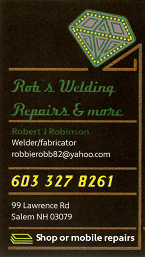
Rob's Welding Repairs And More
Rob's Welding Repairs And More
I have been welding and fabricating for over 19 years. Rob's Welding Repairs & More LLC is fairly new ... but I can assure you that you won't be disappointed. You will deal with me directly from beginning to end and that is what sets me apart - when I start a job, I plan it out and take my time to make sure all options have been discussed with the customer, I take in the opinions and desires of my customer and I'm not done until you're satisfied completely. I do residential and commercial railings (all installation types are available), structural fabrication, structural repair, custom automotive parts, exhaust, steel/stainless steel and aluminum repairs, metal art, and more! Fully insured by Scottsdale Insurance company and happy to provide free, next day quotes for most jobs.
"I want to replace all the wrought-iron on my seaside home with non-rusting powder-coated aluminum. There are multiple components to the job, all needing to be custom made to a high spec. I am lucky to have found Rob! He did a fantastic job on fabrication and installation of the window grilles, and I have already engaged him for the next two projects."
MS S on June 2019
I have been welding and fabricating for over 19 years. Rob's Welding Repairs & More LLC is fairly new ... but I can assure you that you won't be disappointed. You will deal with me directly from beginning to end and that is what sets me apart - when I start a job, I plan it out and take my time to make sure all options have been discussed with the customer, I take in the opinions and desires of my customer and I'm not done until you're satisfied completely. I do residential and commercial railings (all installation types are available), structural fabrication, structural repair, custom automotive parts, exhaust, steel/stainless steel and aluminum repairs, metal art, and more! Fully insured by Scottsdale Insurance company and happy to provide free, next day quotes for most jobs.
"I want to replace all the wrought-iron on my seaside home with non-rusting powder-coated aluminum. There are multiple components to the job, all needing to be custom made to a high spec. I am lucky to have found Rob! He did a fantastic job on fabrication and installation of the window grilles, and I have already engaged him for the next two projects."
MS S on June 2019
New Hampshire State Inspection Auto
New Hampshire State Inspection Auto
NH State Inspection, Auto Sales, Auto Repair, Auto Detailing, Snow Plow Sales, Oil Change, Brakes, ETC. www.NHstateInspections.com NeighborhoodAutoSalesAndService.com @WindhamNHAuto
NH State Inspection, Auto Sales, Auto Repair, Auto Detailing, Snow Plow Sales, Oil Change, Brakes, ETC. www.NHstateInspections.com NeighborhoodAutoSalesAndService.com @WindhamNHAuto
Edwards Small Engine Repair
Edwards Small Engine Repair
Edwards Small Engine Repair offers service and repair of most lawn equipment, tractors, dirtbikes, ATV's, snowmobiles, snow blowers and generators.
Edwards Small Engine Repair offers service and repair of most lawn equipment, tractors, dirtbikes, ATV's, snowmobiles, snow blowers and generators.
DMR Services
DMR Services
DMR Services is a full automotive repair service for all your mechanical needs! From gas or diesel, foreign or domestic, even small or heavy equipment! We also provide frame and rust repair, NH State Inspection, fleet services (ARI provider), and snow plowing! Truly a one stop shop!
DMR Services is a full automotive repair service for all your mechanical needs! From gas or diesel, foreign or domestic, even small or heavy equipment! We also provide frame and rust repair, NH State Inspection, fleet services (ARI provider), and snow plowing! Truly a one stop shop!

Prodigy Autobody & Repairs
Prodigy Autobody & Repairs
Specializing in rust and restorations, fiberglass repairs, all custom metal welding fabrications, and all automotive needs. Call 527-8123 for a free estimate.
Specializing in rust and restorations, fiberglass repairs, all custom metal welding fabrications, and all automotive needs. Call 527-8123 for a free estimate.
- Temple, NH Welders
- Greenville, NH Welders
- Rindge, NH Welders
- Ashby, MA Welders
- Jaffrey, NH Welders
- Peterborough, NH Welders
- Wilton, NH Welders
- Ashburnham, MA Welders
- Lyndeborough, NH Welders
- Winchendon, MA Welders
- Brookline, NH Welders
- West Townsend, MA Welders
- Dublin, NH Welders
- Milford, NH Welders
- Townsend, MA Welders
- Greenfield, NH Welders
- Fitzwilliam, NH Welders
- Mont Vernon, NH Welders
- Hancock, NH Welders
- Fitchburg, MA Welders
- Gardner, MA Welders
- Lunenburg, MA Welders
- Amherst, NH Welders
- Harrisville, NH Welders
- Troy, NH Welders
- Westminster, MA Welders
- Francestown, NH Welders
- Hollis, NH Welders
- Bennington, NH Welders
- Baldwinville, MA Welders
- Roofing in New Ipswich
- Electrical in New Ipswich
- Septic Tank in New Ipswich
- Tree Service in New Ipswich
- Excavating in New Ipswich
- Cleaning in New Ipswich
- Lawn And Yard Work in New Ipswich
- Leaf Removal in New Ipswich
- Pressure Washing in New Ipswich
- Siding in New Ipswich
- Plumbing in New Ipswich
- Contractor in New Ipswich
- Landscaping in New Ipswich
- Pest Control in New Ipswich
- Garage Builders in New Ipswich
- Window Cleaning in New Ipswich
- Home Builders in New Ipswich
- Chimney Sweep in New Ipswich
- Garbage Collection in New Ipswich
- Swimming Pools in New Ipswich
- Land Surveying in New Ipswich
- Carpet Cleaning in New Ipswich
- Furniture Refinishing in New Ipswich
- Roof Cleaning in New Ipswich
- Foundation Repair in New Ipswich
- Handyman Service in New Ipswich
- Exterior Painting in New Ipswich
- Concrete Driveways in New Ipswich
- Kitchen And Bath Remodeling in New Ipswich
- Lead Testing And Removal in New Ipswich
- 🌱 "Mow a small front yard"
- 🛠 "Fix a leaking pipe under the sink"
- 🏠 "Repair shingles on an asphalt roof"

